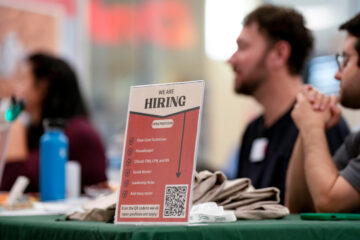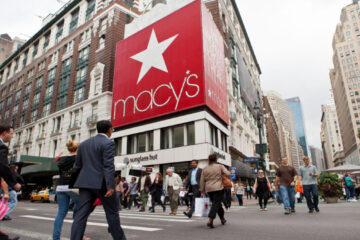Stock market crashes trigger panic selling, but opportunity can follow.
Pgallery for iStockphoto; Canva
What Is a Stock Market Crash?
It’s every investor’s worst nightmare: a sudden and steep market decline that wipes out years of gains in a matter of days. They affect everyone from retail investors to professional traders to institutional fund managers to those saving for retirement, to name just a few. Stock market crashes are not that common; they often catch investors by surprise, but when they do happen, they result in widespread losses that spell even further downside—and it can take generations to recover.
A stock market crash is characterized by a decline of at least 10% over one or several days in a stock market index like the S&P 500, Dow Jones Industrial Average, or Nasdaq Composite.
What Causes Stock Market Crashes?
While no one can pinpoint exactly when a stock market crash will happen, there are several catalysts that could spark the plunge:
Rampant speculation can cause stock prices to become overvalued and asset bubbles to form. This happened with mortgage-backed securities in the late aughts and led to the 2008 Financial Crisis.After a prolonged stretch of economic growth, stocks could demonstrate high price-earnings valuations compared to long-term averages. P/E ratios often peak before a downturn; many analysts believe this was a factor in the Black Monday crash of 1987.There could be a sudden, catastrophic event, like a supply shock or a natural disaster, like what happened at the outset of the COVID-19 pandemic in March 2020.And then there are those causes that are not that easy to identify: They’re simply the result of poor market sentiment stemming from deteriorating economic conditions, such as during a bear market.
Since so much of the market is driven by emotion, any one of these events could cause investors to sell off, and taking cues from each other, their panic rush to offload assets intensifies. While their hope is to prevent further losses, what they wind up doing is driving prices even lower. This is known as capitulation.
How Does the Stock Market Crash? Where Does the Money Go?
During a stock market crash, equity prices collapse over the course of one or a few days. The market decline is rapid. Investors fear the worst and attempt to liquidate their positions, or convert them to cash; oftentimes, this means locking in previously unrealized losses. A stock market crash can be short-lived, or it can take years to recover from, extending into a recession or even a depression.
Investors who have placed large bets using margin (funds they do not own) get particularly hammered during market crashes, as they are forced to face margin calls and thus can experience exponentially greater losses than their original investment. During the 1987 stock market crash, the market’s loss of liquidity was so severe, bid prices exceeded ask prices, and trading became locked at a standstill.
What Are the Biggest Stock Market Crashes? Which Was the Worst?
Some of the most well-known stock market crashes are the following:
The Wall Street Crash of 1929 was the most severe. The Dow fell 23% in two days, sparking the Great Depression.In the Black Monday Market Crash of 1987, the Dow fell 22.6% in one day.During the aftermath of the 9/11 terrorist attacks, the S&P 500 fell 14% in one week in September, 2001.The 2008 Financial Crisis, which was fueled by the U.S. housing market bubble, saw the S&P 500 plummet 20% in one week in October, 2008.During the 2020 global pandemic, the Dow fell 12.9% in one day on March 16, 2020.
How Are Stock Market Crashes Prevented?
Fortunately, Wall Street has learned some lessons from stock market crashes of the past, particularly those of the early 20th century, which caused bank runs and threatened the collapse of our entire economy. These panics led to the formation of the Federal Reserve, whose job is to ensure the stability of our financial markets. The organization often comes to the rescue with emergency assistance, such as quantitative easing measures, or by lowering interest rates, which drives both growth and stock appreciation.
On the trading floors, during the aftermath of the 1987 stock market crash, circuit breakers were added into trading systems. They temporarily halt trading on stock market indexes whenever there’s a deep decline of 7%, 13%, or 20% based on the previous day’s close.
These circuit breakers are divided into the following thresholds:
Level 1 and Level 2: In the event an index drops by 7% or 13%, trading stops for 15 minutes if the decline occurs before 3:25 PM.Level 3: In the event an index drops 20% at any time during the day, trading halts for the remainder of the day.
Regulators also moved quarterly options expiration, which is known as triple witching, from the morning to the afternoon, since that often results in rapidly accelerating sell orders from large institutional funds.
What Is the Difference Between a Correction and a Crash?
Market crashes are steep declines that happen over a short timeframe. A market correction occurs over a longer period than a market crash. Market corrections are also categorized by stock index declines of 10%, but their declines take place over an average of 163 days, as measured from 1990. Like market crashes, market corrections can be temporary or have bigger implications, leading to bear markets or worse.
How Do I Protect My 401k from a Stock Market Crash?
The best thing an investor can do is not get swept up by the hysteria. History has shown that the market always recovers from a stock market crash, even if it takes over 20 years to do so—like it did after the Great Depression, when it took the Dow until 1954 to finally recover from its losses.
Still, the trend for long-term investors, such as 401(k) investors, is always up. That being said, some investors view extreme volatility, even stock market crashes, as an opportunity to buy stocks with solid fundamentals at temporarily reduced valuations.
Is the Stock Market Crashing? Will It Crash in 2022?
TheStreet.com’s Daniel Kline admits that inflation’s been real so far in 2022, but he’s not worried about a stock market crash.


